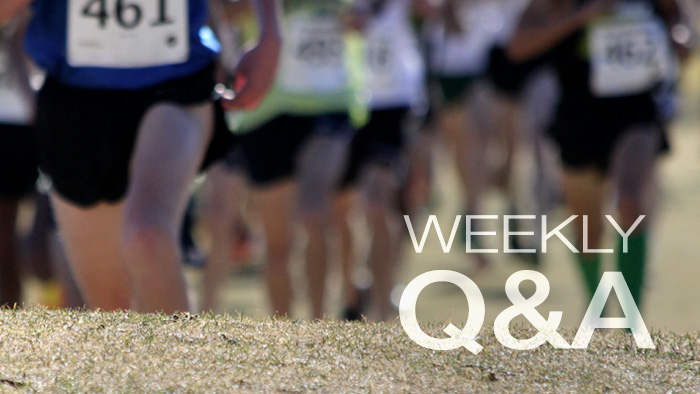Have a question about running? You’re in the right place. Every Tuesday, world-renowned coach, author and athlete Hal Higdon posts and answers athlete questions here. You can submit your question by joining the discussions on Hal Higdon’s Virtual Training Bulletin Boards.
QUESTION
I completed my first half two weeks ago using one of your beginner programs, but have not run much since. There is another half that I would love to do, but I’m not sure how to train, and I only have a few more weeks to be ready. I put on about 3 pounds since that first half, but will do my best to get rid of that immediately. Today I ran an easy 4.5 miles. It was not as comfortable as I’d like, but it was much better than expected. I don’t really know what length of runs and at what pace I should do to be ready again. I know it’s a short time, but I feel I’m up to the challenge with your guidance.
HAL’S ANSWER
Have you ever heard of a riptide? Living as I do on the shores of Lake Michigan, I am quite familiar with riptides, swift currents that on wavy days sometimes sweep unwary swimmers into deep water. Several people drown near us each year. The secret of survival is to relax, swim parallel to shore, don’t fight the tide, then when it weakens swim to shore. Of course, the real secret is not to go into the water on high-wave days.
In many ways, you’re caught in a riptide. You ran your first half. You loved it. You took a couple of weeks off, then got swept up with the idea to run another half. But in the meantime, you gained some weight, which you somehow feel you need to lose “immediately.” Someone throw that gal a life preserver.
So my first word of advice to you is, relax. You did not immediately lose all the fitness achieved during the 12 weeks of my half marathon program. But you lost some of it, since that 4.5-mile run did not feel as easy as before. Still, you got through it, and if you do a few more runs, maybe one or two of them in the 5-10-mile range, you can finish half #2. Just don’t expect to finish as fast as half #1.
More important than what you do leading into that second race is what you do later. Instead of hopping from one race to the next, look far ahead. How can you get out of that riptide and back to shore? What sort of training should you do after the half marathon in the following months and the following years? You will achieve greater success if you plan for your next race months ahead rather than weeks ahead. Since we are near the end of the year, this is the perfect time for some New Year’s Day resolutions. Swim back to shore, and don’t go back in the water until you know you can survive the high waves of the next riptide.


